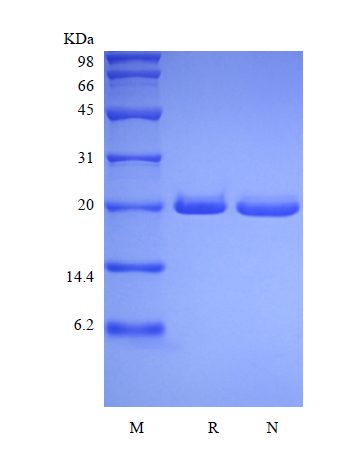Syndecan-4 (SYND4) encoded by the SDC-4 gene in humans, has a molecular weight of ~20 kDa. It is one of the four vertebrate syndecans which belong to the syndecan family of Type 1 transmembrane proteins and capable of carrying heparin sulfate (HS) and chondroitin sulfate glycosaminoglycans. Syndecans are the best-characterized plasma membrane proteoglycans with two conserved cytoplasmic domains and divergent extracellular portions, except for HS attachment sites. SYND4 is the most similar to SYND2, but is more universally expressed and is found in virtually every cell type. Expression can be upregulated by TGFβ2 and in response to mechanical stress in smooth muscle, wound healing, arterial injury or acute myocardial infarction, probably in response to at least one inflammatory mediator. SYND4 has more widespread distribution than other syndecans and it is the only syndecan that has been found consistently in focal adhesions. Human SYND4 ECD shares approximately 79 %, 78 % and 81% a.a. identity with mouse, rat and porcine SYND4 ECD, respectively.

